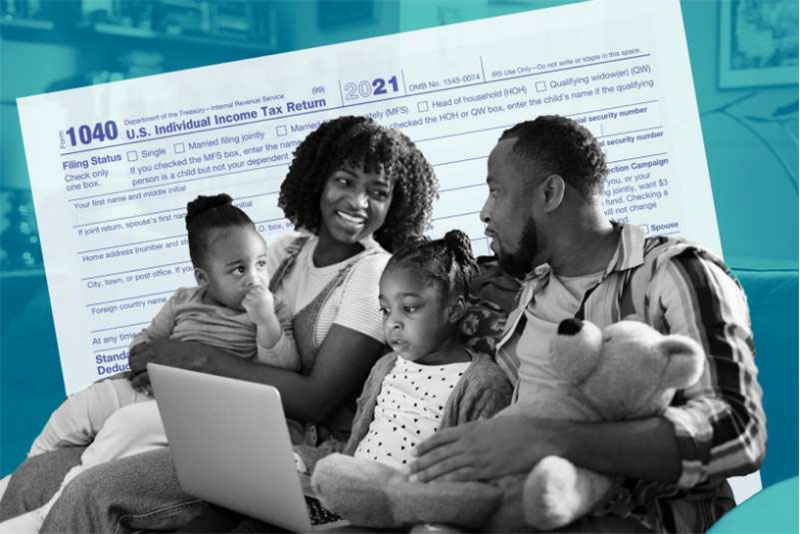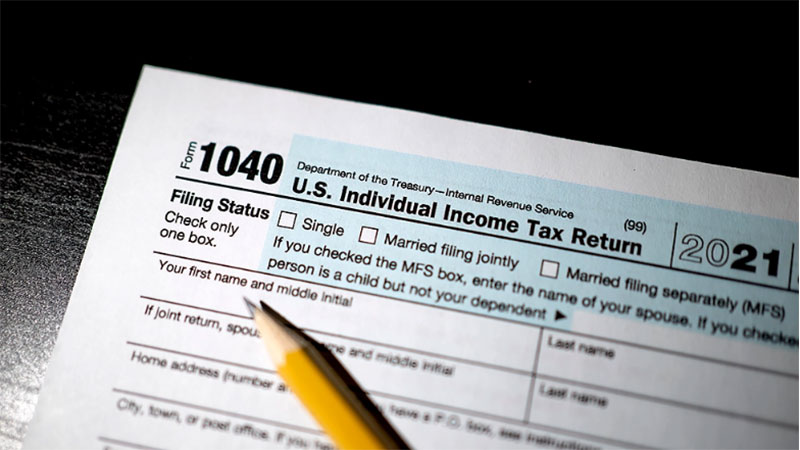In this article, we'll go through the ground principles by which you may judge whether or not your child is required to file. Learn more about it!
You'll have to make some important choices as your kid grows up, and one of them will be how to encourage self-sufficiency and accountability in your adolescence or teen years. Although you know that a child files a tax return is an inevitable part of growing up, it's possible that you need to prepare for your child to reach this particular developmental milestone.
Even though the IRS has a dedicated webpage for teachers, tax preparation is not typically taught in schools. The reasons for this are multifaceted, ranging from a lack of resources and student enthusiasm to a systemic inability to provide students with the required knowledge and abilities.
Having even a general understanding of income taxes, much alone the exact requirements, is beyond the comprehension of most youngsters. As a parent, you should evaluate the needs of your child before the child files a tax return and seek counsel from tax specialists so that they can begin this important milestone event.
In this brief introduction, we'll go through the ground principles by which you may judge whether or not your child is required to file. It also includes advice on how to assist your child in becoming more independent in handling their tax responsibilities. Except when otherwise specified, all monetary amounts in this article pertain to the 2022 tax year.
Tax Return for A Child: Dependent Child Category

Your kid must meet these criteria set for dependent status in order to file a kids first income tax return:
- Possess a current and active Social Security card (SSN)
- Fail to submit a combined tax return (if married)
- Be your biological or legally recognized offspring, such as a son or daughter, adoptive or stepchild, qualified foster child, biological or legally recognized child, step-sibling, or descendants from any of the above.
- A child must either be of age 19 or less than that at the conclusion of the fiscal year, under 24 if they are a full-time learner or under any age if they are entirely incapacitated.
- Spend over half of each year in the United States with you.
It is important to note that, as a result of the TCJA, also known as the Tax Cuts and Jobs Act and signed into law in 2017, homestead exemptions for families and other individuals responsible for dependents were removed.
There are, however, several different avenues via which tax savings might be achieved. Some examples are:
- Filing as a head of household
- Subtracting Taxes for Children
- The tax credit for dependents and children
- The tax credit for working families
- Credit for Lifelong Learning and the American Prosperity Tax Deduction
- deduction for interest on student loans
- Healthcare expenditure write-off
When Does Your Kid Need to File Taxes?

Misguided parents may assume they may avoid paying taxes altogether by claiming their child as a dependent. Your child may be considered dependent, but that does not mean they are exempt from submitting their tax return for a child. Any kid who does one of the following things has to fill out the following:
- If a kid has just unearned earnings (such as investment interest or profits) of USD 1,150 or more than that, then the child is not eligible for the additional federal benefit.
- When a child's earnings reach USD 13,850
- A reliant child must file if their investment income is more significant than USD 400 and they receive any employment income. However, before filing, a cutoff standard of USD 1,150 in annual revenue is required. This threshold increases to USD 13,850 (USD 14,050 in 2023).
- If the teen has a business and earns USD 400 or more significant net profit, they are considered "self-sufficient."
Suppose your child is blind, doesn't disclose tips to their employer, receives payment from a religion exempted from entrepreneur Medicare and Social Security payments, or receives money from a company that doesn't withhold taxation. In that case, they may be subject to different laws.
You can eliminate submitting an individual tax return for your kid by submitting an alternative discussed later in this section if offering a return is needed under the initial test mentioned above and the kid does not have other earnings than unearned income.
When Should Your Child File Their First Tax Return?
- The earnings were subject to income tax withholding.
- They are qualified to claim the earned income tax credit.
- As a result, they are responsible for paying recapture taxation
- They're thinking about starting an IRA.
- You hope your kid will learn something from the tax-filing process.
The primary motivation for submitting in the initial two scenarios is to claim a refund. The rest require either an increase in income or the seizing of a chance to start a retirement savings account or educate oneself on financial planning.
Submission for Refund of Withheld Taxes
Some companies automatically deduct taxes on wages. Children that do not anticipate having any taxable income (and individuals who did not have any income tax obligations the prior reporting year) might obtain an exemption by completing Application W-4 beforehand.
Filing Earnings from Independent Employment
Application 1040 and File C can be used to record your earnings as a self-employed child. Your child will be required to file taxes if they have earned more than USD 400 as a self-employed individual (or USD 108 if they work for a non-profit or religious agency that is excluded from the employer's Social Security and Medical taxes).
Your kid should utilize Schedule SE to determine if they have self-employment tax obligations. Although if your kid has no earnings tax due to pay, they may still be required to contribute self-employment taxation at the rate of 15.3 percent.
Kids First Income Tax Return: Application for a New IRA
Even though it may seem odd to start saving for retirement so early, your child can legally register an IRA as soon as they start making money. Earned money, by the way, can originate from either employed or self-employed work.
Consider contributing an equal amount to your child's IRA if you are in a position to do so. With this strategy, your offspring may begin retirement savings without giving up too much of their income.
It also prepares students for the possibility of encountering matching money in the future, should their employer provide a 401(k) plan. If the child is eligible, opening a Roth IRA will allow them to start reaping the benefits of compound interest over many years before retirement and tax-free withdrawals in their golden years.









